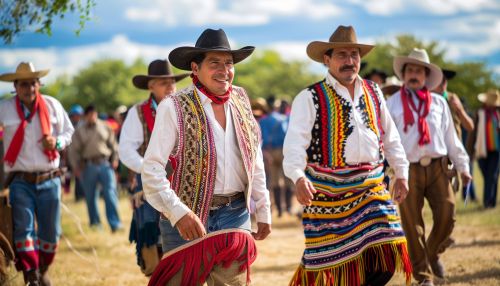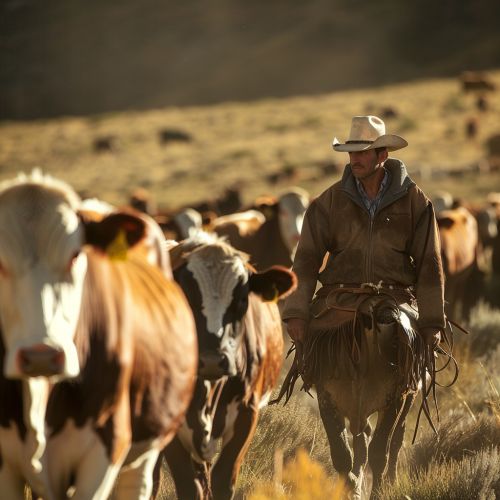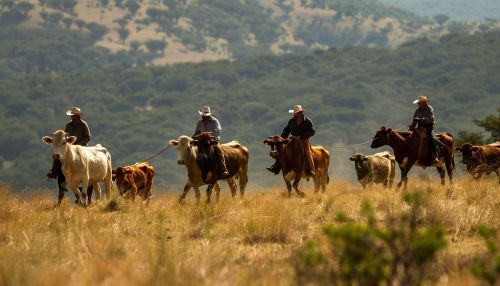Gaucho
Origins and History
The term gaucho originates from the South American regions, specifically the Pampas plains that stretch across Argentina, Uruguay, and Brazil. The word 'gaucho' is believed to have derived from the Quechua word 'wakcha', which can mean poor or vagabond. However, in the 18th century, the term began to be used to refer to the semi-nomadic horsemen and cattle herders of the region.


The gauchos played a significant role in the wars of independence in the early 19th century. They were renowned for their horse-riding skills and knowledge of the land, which made them valuable assets in guerrilla warfare. Their involvement in these wars helped shape the national identities of Argentina, Uruguay, and parts of Brazil.
Culture and Lifestyle
The gaucho culture is deeply rooted in the rural traditions of the South American plains. Their lifestyle was primarily nomadic, revolving around cattle herding and horse riding. Gauchos were known for their distinctive attire, which included bombachas (baggy trousers), ponchos, wide-brimmed hats, and boots made from durable materials to withstand the harsh conditions of the plains.


Music and dance also played an integral part in gaucho culture. The payada, a form of improvised musical dialogue, and the milonga, a fast-paced folk dance, are both significant elements of gaucho tradition.
Gauchos in Literature
Gauchos have been a popular subject in Latin American literature, often depicted as romantic figures embodying freedom, bravery, and loyalty. The most famous literary work featuring a gaucho is the epic poem Martín Fierro by José Hernández, which is considered a cornerstone of Argentine literature.


Modern Gauchos
Today, the gaucho lifestyle continues in the rural regions of Argentina, Uruguay, and Brazil, albeit in a modernized form. Gauchos remain an important part of the agricultural industry, particularly in cattle ranching. They also play a significant role in promoting and preserving traditional customs through folk festivals and rodeo events.


